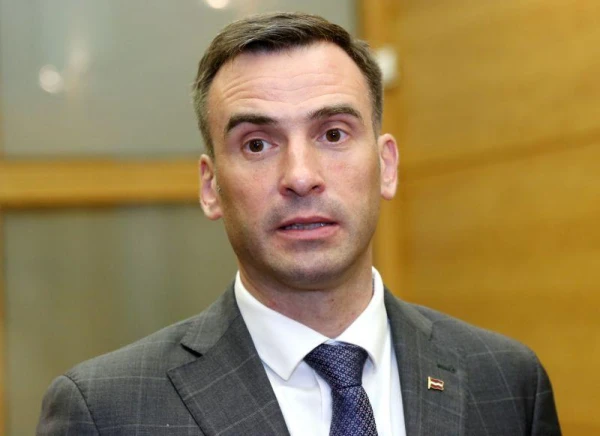
The Ministry of Finance warned university hospitals not to count on additional payments for medical services in 2026. They should provide services only with the funds available, writes Grani. How to treat the remaining patients, the Ministry of Finance did not specify.
Remarkable statements from the Ministry of Finance were made at a meeting of the parliamentary committee on social and labor affairs. Speaking at the meeting, the Deputy State Secretary of the Ministry of Health for Financial Affairs, Boris Knigin, warned that next year clinical university hospitals will have to meticulously calculate their operations to stay within the allocated budget. The practice of hospitals providing more medical services than planned and then asking the state for compensation at the end of the year is coming to an end.
There will be no more additional payments to hospitals: treat patients only with the money provided!
However, these largest healthcare institutions in Latvia did not request additional payments at the end of the year out of a good life. Not because they have become greedy, nor because they have taken to treating healthy people. The need for additional payments is explained very simply: firstly, the costs in the country are sharply rising – for electricity and heating, for water and garbage disposal. For food, finally (yes, patients in hospitals have the bad habit of eating). The costs for medications and instruments, gowns and gloves, masks and disinfectants – basically for everything – are also increasing. Moreover, due to a significant decline in the standard of living in Latvia, the number of sick people is rising. In a state where outpatient care is no longer sufficient, hospitalization is necessary.
Well, the representative of the Ministry of Finance at the meeting made it clear that his department is aware of this, but it does not influence the decision to eliminate additional payments. Inflation and rising costs year after year have led to the fact that the same amount of medical services cannot be provided for the same money as in previous years, he agreed. Therefore, the actual volume of services is being reduced.
How did the Ministry of Health react to this? Philosophically. It plans to give hospitals more... no, not more money from its ministerial funds (let's put those outstretched hands away!). It intends to give hospitals more freedom to redistribute funds within the institution throughout the year. For this purpose, it is working on a new bill (the Abu Meri department loves to engage in legislation much more than in treatment).
And the Ministry of Health is spending its funds on more pressing needs – the total digitization of the healthcare system. It is not needed by doctors. It is not needed by patients. Here is an example: recently, my acquaintance went for a breast ultrasound, and the doctor required the data from a mammogram (the image and description) done under the state program six months earlier. "But they are no longer provided on paper," the patient shrugged. "I thought you would check in the electronic system." To which the doctor replied: "You know, if I have to check the e-system for each patient, there will be no time left for the actual appointment."
However, for the Ministry of Health, digitization is practically a fetish. Recently, it promoted another set of amendments, this time to the Cabinet of Ministers' regulations "On the Unified Electronic Information System of Healthcare," according to which all medical institutions in Latvia will have to implement electronic referrals from November 20, 2025, to May 4, 2026.
For what? For everything: for consultations with specialist doctors, for conducting diagnostic studies, for providing home medical care, for receiving other outpatient, day, and other services.
And it doesn’t matter that it is becoming increasingly difficult to obtain these very services. With our queues stretching to the horizon, we have already embarrassed ourselves across Europe: the "Healthcare Economy Barometer 2025" showed in numbers that they are the longest in Latvia, while patient contributions are among the highest in the EU. Accordingly, the indicator of healthy years of life in Latvia is the lowest in the EU.
However, the referrals to doctors, which are impossible to access, are electronic, as are the diagnostic data that cannot be obtained under state quotas. And prescriptions for medications (where the coverage of reimbursable drugs is only 18% of those approved in the EU) are also electronic.
Maybe we should also make the Minister of Health, as well as the Minister of Finance, and the entire Cabinet electronic? If we are digitizing, let’s digitize!












